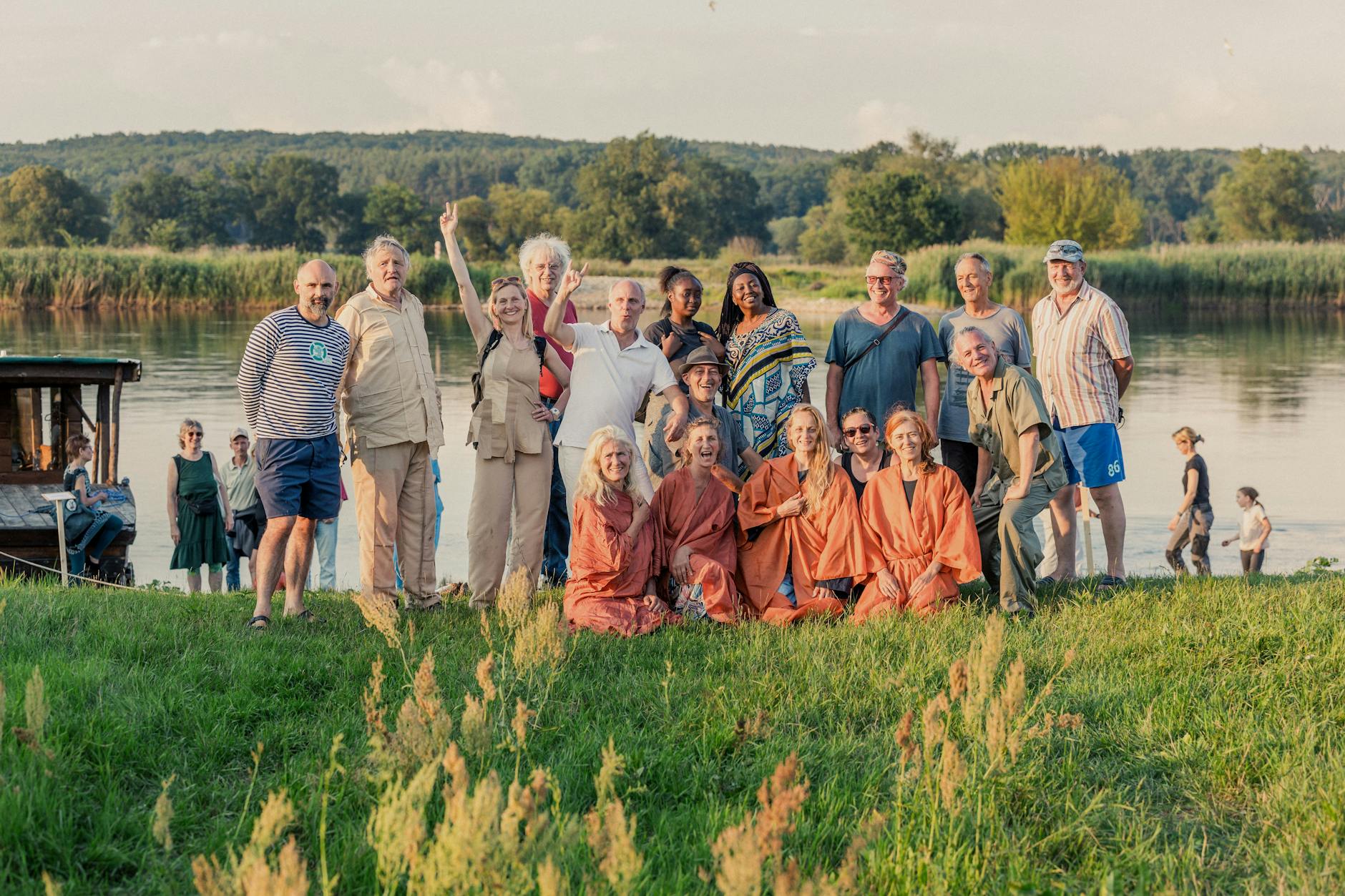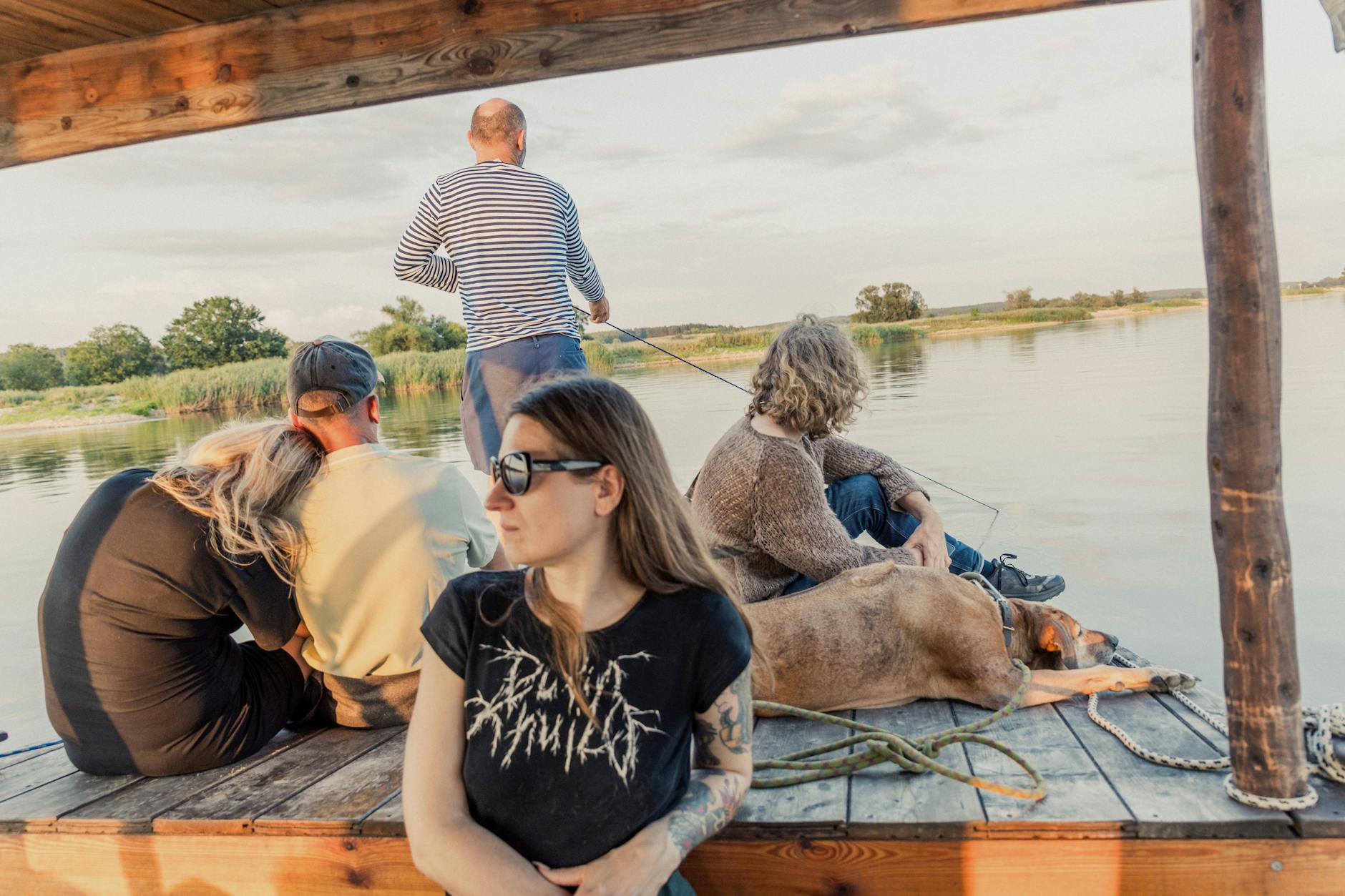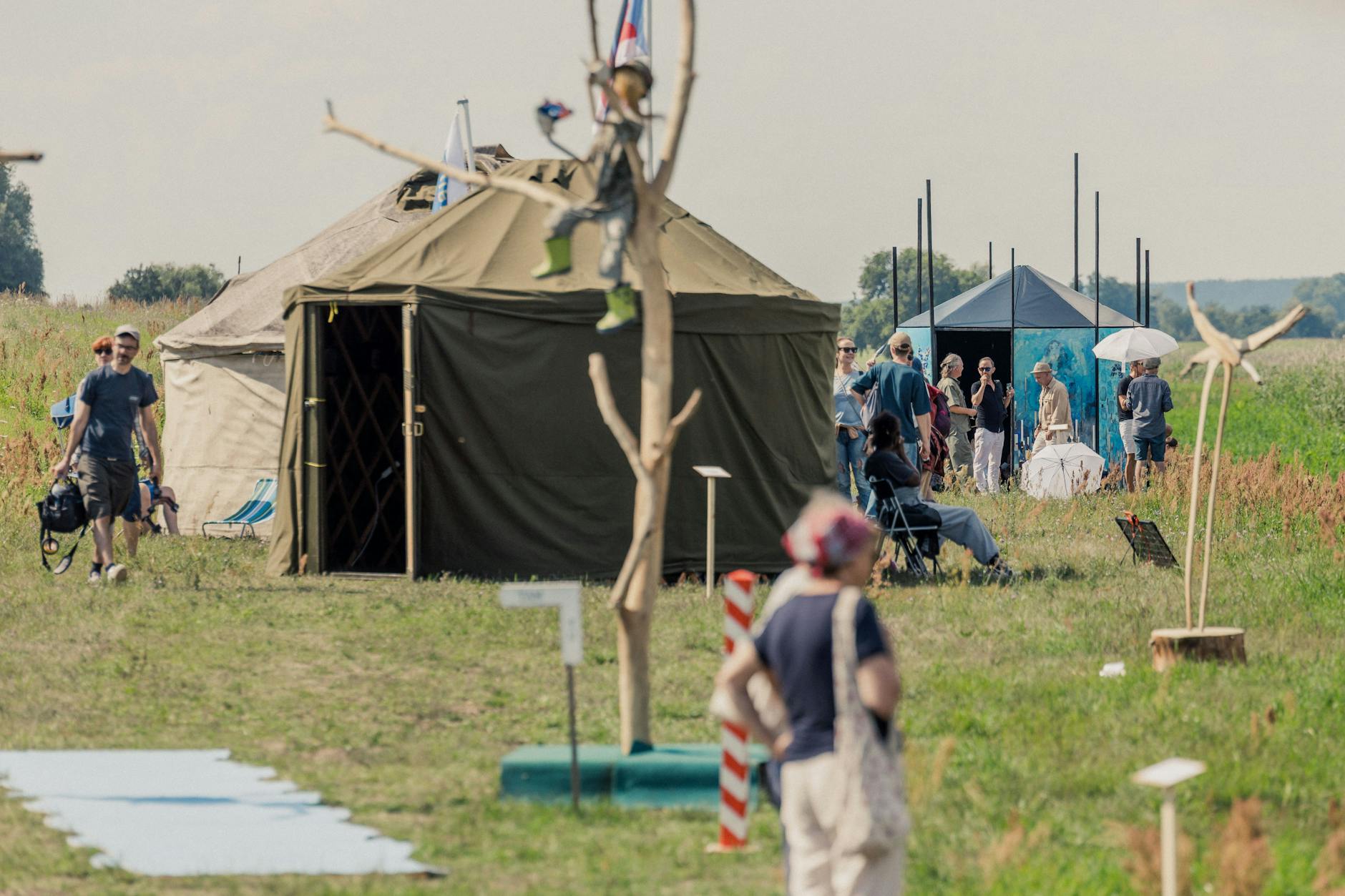On the banks of the Oder: Fear of war was discussed at the German-Polish Liederlauschen festival

What is the current state of German-Polish relations? Is the arms buildup debate perceived differently in the two countries? There was a controversial debate in the Oderbruch region.
The people and landscapes on both sides of the Oder River reflect the turbulent history of both countries, their normal state, but also the abysses of this blood-soaked region, whose administrative structure and demographic profile are a direct result of the Second World War. The Oderbruch region has managed to preserve the impression of a friendly standstill in time, the charm of deceleration and seclusion, and this is probably why it is increasingly attracting artists and intellectuals weary of the big city—especially from the inner-city districts of Berlin—to the region, on the German-Polish border.
Deep in the Oderbruch, in the tiny village of Zollbrücke with just 24 inhabitants, lies the Theater am Rand (Theater on the Edge) – a wooden structure that, at first glance, resembles a half-open yurt. Visitors' gazes glide over the green meadows where storks stalk. However, there was no trace of the "heavy North German character" of this landscape, which Theodor Fontane once encountered on his hikes through the Margraviate of Brandenburg in the Oderbruch region, this weekend. Quite the opposite.

Numerous visitors and guests gathered on the grounds of the Theater am Rand and the surrounding Oderwiesen meadows over the weekend, where the "Liederlauschen am Rand" festival took place from July 25th to 27th. "With Liederlauschen am Rand, we want to host a cross-border festival that brings people of different backgrounds and generations together and demonstrates how we, as creative beings, use our abilities to act positively for people and the environment," the organizers' website states. For three days, visitors were treated to live concerts by Polish and German bands, accompanied by workshops and other activities.
However, there was occasional criticism that the proportion of Polish artists and visitors was lower than in previous years. As an additional program on Sunday, the last day of the festival, a discussion event, the so-called Oder Talks, took place under the title "Armament: German Weapons Fear OR Polish Defence Capability?", moderated by Tomasz Kurianowicz, editor-in-chief of the Berliner Zeitung. The invited panelists included historian and Poland expert Martin Kloza and the author of this article.

The event took place in one of the yurts that had been set up on the shore. The event was curated by Almut Undisz and Heiko Michels. Michels, a Kiel native born in 1977, stated: "Perhaps my aim is to create forums for the contradictions of our time, situations in which these contradictions collide." Michels pointed out that the theater, in its original meaning during the time of Athenian democracy, was a place of lively political debates, a tradition that has been passed down from ancient Greece to the present day. He himself advocated for reviving the culture of debate in its original form.
Michels recalled the limitations of the Berlin bubble and the serious urban-rural divide in the country. "Art creates a political sphere" was his credo. And indeed, the conversation between the discussants and the audience was characterized by this very culture of debate. In addition to the political mood in Poland, which, according to historian Michael Kloza, threatens to tip over in light of support for Ukraine, the author of this article pointed out that the current geopolitical situation is shaped by the fact that much of the world is not following the Western narrative on Ukraine anyway, and that this will weaken the West. The discussion showed that fear of war is growing in both Germany and Poland, but that both Poles and Germans are dealing with this fear very differently. Some advocated for rearmament, others criticized the growing militarization. One visitor, in turn, said that he was a pacifist and now supported arms deliveries to Ukraine, but did so with a bad conscience. Overall, it was said that nuanced, contradictory positions were neglected in the arms buildup debate. All participants agreed on this.

The visitors also spoke about their experiences in the region, including the fears caused by domestic political developments in Germany, especially in Brandenburg. A queer couple who have lived in the region for 14 years reported growing hostility and attacks. There was unanimous regret that German-Polish relations have not yet reached the level of German-French relations, and that much is still possible, especially in the area of student and youth exchanges. Michels was moderately optimistic about the future prospects, but feared that a further rise of the AfD could complicate funding for the festival. The organizers explained on their website: "We are receiving financial support from the Interreg Mecklenburg-Vorpommern/Brandenburg/Poland Small Projects Fund, co-financed by the European Union with a sum of €49,998. With these funds, we can cover a large portion of the fees and the necessary infrastructure." A visitor from Frankfurt an der Oder, who attended the festival with her sister, explained after the event: "Although we live in the immediate vicinity of Poland, cultural exchange is still very limited. But especially today, international understanding is more important than ever, so I hope that the Liederlauschen Festival will continue."
Do you have feedback? Write to us! [email protected]
Berliner-zeitung

